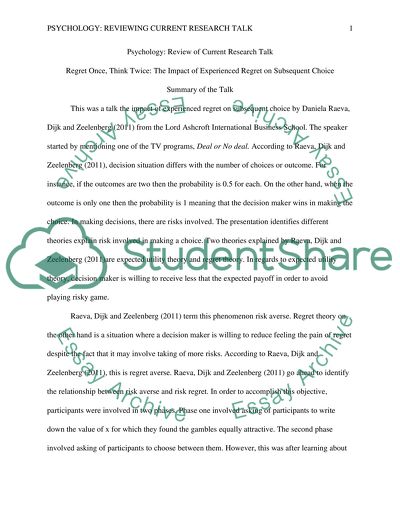Cite this document
(“Regret Once, Think Twice: The Impact of Experienced Regret on Essay”, n.d.)
Regret Once, Think Twice: The Impact of Experienced Regret on Essay. Retrieved from https://studentshare.org/psychology/1440047-review-of-current-research-talk
Regret Once, Think Twice: The Impact of Experienced Regret on Essay. Retrieved from https://studentshare.org/psychology/1440047-review-of-current-research-talk
(Regret Once, Think Twice: The Impact of Experienced Regret on Essay)
Regret Once, Think Twice: The Impact of Experienced Regret on Essay. https://studentshare.org/psychology/1440047-review-of-current-research-talk.
Regret Once, Think Twice: The Impact of Experienced Regret on Essay. https://studentshare.org/psychology/1440047-review-of-current-research-talk.
“Regret Once, Think Twice: The Impact of Experienced Regret on Essay”, n.d. https://studentshare.org/psychology/1440047-review-of-current-research-talk.


